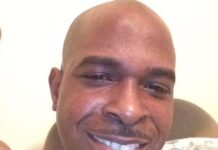
NASSAU- Two women have lost a court battle against their father’s lover who inherited all of his belongings.
Reginald Major, who operated several businesses on Harbour Island, died on January 17, 2014.
Schikea and Travia Major, the deceased’s only children, were shocked to learn that their father had disinherited them in a will dated May 28, 2010.
Mr Major had left all his possessions to his daughters in a previous will dated July 21, 1998.
Family legacy
The daughters began court proceedings to declare the 2010 will that was executed while Mr Major was in hospital null and void.
They alleged that he was not in his right frame of mind due to the medication he was on.
Schikea testified that her father told her that all of his possessions belonged to his children and grandchildren. According to her, her father wanted them to continue his legacy by running the family business.
She said she did not believe that her father would disinherit his mother and children for Mary Thompson, a married woman.
Travia, Mr Major’s youngest daughter, said their father sent them money monthly and they helped to run the family’s businesses.
She said that their father told his workers that if anything happened to him to turn everything over to his daughters. Travia said her father would have told them if he had cut them out of his will.
14-year relationship
Thompson testified that she had known the deceased for 14 years. During that time, they vacationed together, lived with each other, and she conducted all his business.
Thompson said the only time Mr Major’s children checked on him is when they wanted financial assistance.
Thompson recalled that Mr. Major fell ill while in Nassau to attend her daughter’s wedding. She said she took him to the Walk-In Clinic, and he was admitted to the Princess Margaret Hospital.
X-rays showed he needed surgery to remove a mass from his lungs. Before the surgery, Mr Major instructed her to get a lawyer to execute a will.
She recollected him saying, “Mary you are the only one who has helped me in this life, and I want to leave everything to you in case something goes wrong.”
Thompson said when she asked what about his children, he replied, “What about them?”
She had the lawyer draft the will in accordance with his wishes. He signed the will two days before his operation in the presence of a nurse and Thompson’s brother.
According to Thompson, Mr Major had accused his children of stealing from him.
In dismissing the lawsuit, Justice Ian Winder said, “This was the absolute right of the deceased, as a testator is free to dispose of his property as he sees fit, and no heir, outside of a minor dependent, has any call on his property. It is not open to the Court to question the deceased’s motives in freely disposing of his estate.”
Justice Winder added, “What is also telling was the fact that the 2010 will was concluded almost four years prior to the death of the deceased. Had he been coerced or felt influenced to make the 2010 will, as is allegedly by the plaintiffs, it was open to him to make a new will, if he so wished.”














